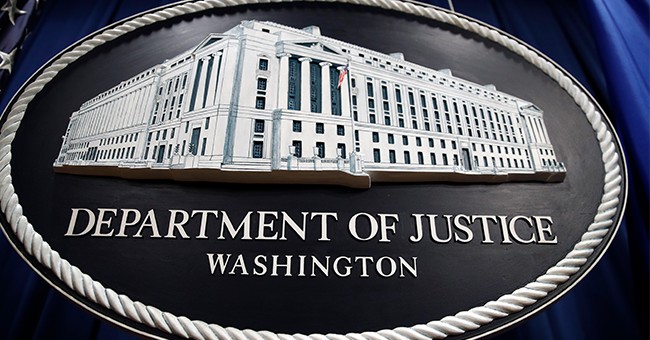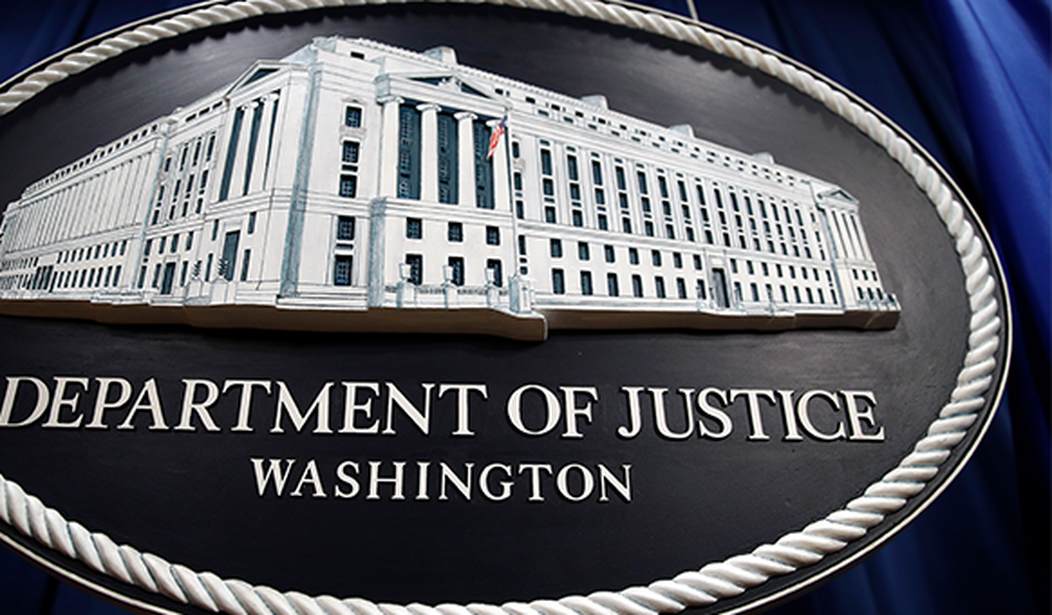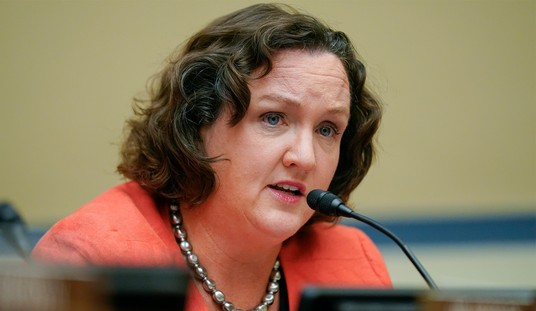
Brandon Van Grack has been an attorney with the Department of Justice since 2010. Much of what appears below is based simply on my conjecture and conclusions after having spent 22+ years with DOJ, and knowing MANY Trial Attorneys from Main Justice who migrated out to US Attorney Offices where I worked — usually for family reasons or simply to be a “different” kind of federal prosecutor (i.e., one who went to court regularly).
Van Grack was first hired as a Trial Attorney in the “Counterintelligence and Export Control Section” of the National Security Division (NSD) after one year as a law clerk for U.S. District Court Judge Thomas Hogan. Van Grack is a Harvard Law grad, and spent 3 years as an associate with the very large and prestigious “Baker Botts” law firm in Washington DC.
The “Counterintelligence and Export Control Section” of the NSD is the espionage prosecution office of DOJ. For Van Grack to get hired into a Trial Attorney position in that Section straight from a single year as a law clerk for a district court judge means only one thing — he had a friend at NSD who was well-connected in the hiring process. No one gets hired as a “Trial Attorney” in one of the top litigation sections (by importance, not number of trials) in DOJ with zero trial experience. Clerking for a federal judge — where you might get to watch a few trials — is not a substitute for having experience in the fight yourself.
Van Grack was a “Trial Attorney” in that Section from 2010 to 2014. In April 2014 he took on the title of “Special Counsel” to the Assistant Attorney General for the National Security Division — which at that time was the somewhat infamous John Carlin, who served in that position from 2014 to 2016 when he resigned shortly after advising the Foreign Intelligence Surveillance Court of longstanding violations of Sec. 702 of the FISA statute regarding interceptions of US persons — which the National Security Division was supposed to prevent.
Prior to joining the National Security Division, from 2009 to 2011 Carlin has served as Special Counsel and Chief of Staff for FBI Dir. Robert Mueller.
Carlin is a Harvard Law grad.
See how this works?
Van Grack — Harvard Law grad.
Van Grack selected to be “advisor” to Carlin from April 2014 to Nov. 2015.
Carlin was former Chief of Staff for Mueller.
Van Grack selected to join Mueller Special Counsel Office (SCO) in 2017.
Van Grack’s move from Trial Attorney to “advisor” to the AAG was for the purpose of giving him some “policy” background and experience. He would not be handling cases, but he would be “advising” the Assistant Attorney General on how the National Security Division should be run. This was the start of the process for grooming Van Grack to move up through management in DOJ — likely in tow behind Carlin who expected his own career to continue advancing until he ran into his FISC problems.
From 2015 to 2017, Van Grack held the position of “Special Assistant U.S. Attorney” in the E.D. of Virginia. A “Special Assistant” is a government attorney who is paid by some other office, but is sent to work for a U.S. Attorney’s Office somewhere in the country. Van Grack was sent to work in the ED of Virginia, while still a member of the National Security Division. Sometimes the purpose for having DOJ Trial Attorneys do this is so they can …. you know, try cases. Trials happen for AUSAs, but not so much for “Trial Attorneys”, making the title somewhat of an oxymoron.
The U.S. Attorney in the ED. Va. at that time was Dana Boente. Until just a couple weeks ago Boente was General Counsel at the FBI under current Dir. Chris Wray.
Boente is said to have led the fight on behalf of the FBI AGAINST disclosing to Gen. Flynn’s attorneys the documents that had been withheld — either withheld FROM Van Grack, or withheld BY Van Grack.
I can’t see anything in Van Grack’s career at Justice that suggests he was ever a talented — or even competent — trial lawyer.
Besides his work on the Flynn case — which I’ll get to shortly — I did find a news report on Van Grack that “confirms” my suspicions about about his lack of “quality” — or maybe just lack of experience.
On October 2, 2018, CNN reported that two members of the SCO were departing and returning to their positions with DOJ — having been sent to the SCO from DOJ. One of the two named in the report was Van Grack, who was said to be returning to his position in the National Security Division. This is how Van Grack’s work for the SCO was described in Oct. 2018:
Van Grack acted as the third chair among the prosecutors in the Manafort trial in Virginia, questioning a few witnesses and filing after-hours legal briefs arguing the terms of the trial for the judge. Van Grack also is one of two prosecutors from Mueller’s office handling former national security adviser Michael Flynn’s guilty plea in court. He will continue to represent the office on Flynn-related matters.
So Van Grack was a briefcase carrier who held the door open for the attorneys actually trying the Manafort case in Virginia — which was a tax case mainly — and he was not listed as part of the trial team on the Manafort case in the District of Columbia which was the multi-national money laundering case that tied Manafort to Ukraine and Russia. If your are filing late after-hours briefs then you are not preparing to examine or cross-examine witnesses the next day. He was useful for “scut work” on the “B” team, but not a member at all of the “A” team.
The CNN article also noted that Van Grack was one of two SCO attorneys assigned the Flynn case. Flynn was a “Don’t do anything stupid to screw up this easy guilty plea” case. Van Grack was allowed to offer Flynn a no-time, single count “false statement” deal, allow Flynn’s son and business to escape prosecution, and all Flynn had to do was agree to cooperate against Donald Trump and his business partner. Van Grack was also told the SCO — and therefore Rod Rosenstein — would back him up when he told Flynn’s lawyers they could not see any evidence the SCO had against Flynn, and Flynn had 24 hours to agree to take the deal or everyone would be indicted.
So, what did Van Grack do?? He screwed up the “easy guilty plea” case.
He screwed it up in a variety of ways, not the least of which was repeatedly stating there was no Brady material being withheld while continuing to produce records to Gen. Flynn’s counsel in response to demands for Brady material pursuant to Judge Sullivan’s Standing Order. Rather than deny over and over again that such evidence existed, he would have been better served by just sending everything out without commenting on whether it did or did not constitute Brady material. “Here it is, call it whatever you want.” The merits of that approach, and the downside of the way he did it, are pretty obvious if 1) you have some experience, and 2) you think about it for about 30 seconds.
But more obvious — to me anyway — was that he was careless when he wrote the paperwork making up the documents supporting the change of plea.
I didn’t figure this issue out — I think the credit goes to Margot Cleveland at The Federalist — but Van Grack was not accurate in his unnecessarily precise drafting of the “Factual Statement” in support of the plea, especially given that he knew that there was “wiggle room” in the actual words used by Gen. Flynn in both the transcript of his calls with Kislyak, and his answers to the questions by the FBI agents as reflected in their 302.
In setting forth BACKGROUND FACTS — mostly unnecessary except to make reporters happy — with far more specificity than he needed, he wrote:
On or about December 28, 2016, then-President Barack Obama signed Executive Order 13757, which was to take effect the following day. The executive order announced sanctions against Russia…
By using that language, he has defined for all purposes thereafter what were the “sanctions” that were the subject of the order. He never says at any point later in the Factual Statement that the “sanctions” referenced in the Flynn-Kislyak calls were the same sanctions as outlined in EO 13757, or if they included some other actions that might generically be called “sanctions.” It would have been easy to do with just one sentence.
The problem is that the EO dealt with a series of very specific steps taken by the Obama Administration against Russian government interests. One thing the EO did NOT cover was the expulsion of 35 Russian diplomats thought to be Russian intelligence officers. Those expulsions were announced on December 29, the day after the EO.
While this might seem to be “picking nits”, the fact is that the document Van Grack drafted said term “sanctions” applied to a very specific thing — the steps set forth in the EO. That did not include the expulsions. The factual basis described Gen. Flynn’s denials that he talked about “sanctions” with the Russian Ambassador. But the comments he made during the phone call were about the “expulsions” when he made reference to asking the Russians to not “escalate” the matter, and to make any response “reciprocal.” Just before Flynn makes this comment, according to the summary, he mentioned to Kislyak that he understood the Obama Administration was going to “dismiss some number of Russians out of the country” — i.e., the “expulsions.”
Kislyak then comments on the fact that the GRU and FSB are “sanctioned” — which they were among the steps announced in the EO Van Grack referred to — making the two issues separate subjects in the call between Flynn and Kislyak — with them discussing briefly that the “sanctions” on the GRU and FSB would make it more difficult for the two groups to work with the US on Middle East and Syrian issues.
I’m not arguing that when Flynn was answering questions, in his own mind he was differentiating between “sanctions” discussions and “explusions” discussions in the call with the Ambassador. What I am saying is that Van Grack made a stupid error in wanting to be overly precise in laying out his “gotcha” facts about the EO and “Sanctions” so he could make the Factual Statement as sexy for the press as possible. And it wasn’t just one instance. The Statement of Facts also says the following:
On or about December 29, 2016, FLYNN called a senior official of the Presidential Transition Team (“PTT official”)… to discuss what, if anything, to communicate to the Russian Ambassador about the U.S. Sanctions.
Is that a “generic” all-inclusive “sanctions” including the explusions, or the “Sanctions” set forth in the EO as he he specified earlier?
FLYNN called the Russian Ambassador and requested that Russia not escalate the situation and only respond to the U.S. Sanctions in a reciprocal manner.
He conflated the two again, and now confused it further because Flynn asked the Russians to respond to the exclusions in a reciprocal manner — not the EO 12757 as Van Grack had defined “Sanctions” to be. He repeats this same problem 2-3 more times.
These are not mistakes made because Van Grack is a bad prosecutor — these are mistakes that are made because Van Grack was not that experienced in handling actual criminal cases, and drafting these kinds of documents as part of guilty pleas. In 22 years I probably prepared similar paperwork more than 700-800 times. You learn as you go. A “Trial Attorney” with a Main Justice litigating section handles far fewer cases, they generally handle them in “teams”, not alone, and there are far fewer opportunities to draft these kinds of documents over the course of a 5-6 year career, which is about all Van Grack had at that point if you take away the time he spent as “Special Counsel” to the AAG.
In retrospect, while it was a theme in the media that Mueller had brought in a team of superstar prosecutors, Brandon Van Grack did not fit that description — either by his history in DOJ or the work product he produced.
Post Script:
On a different subject about a Van Grack failing. I do not fear contradiction when I say that I’m not aware of any experienced prosecutor who would have faced the “conflict of interest” issue that was apparent between Gen. Flynn and his Covington & Burling attorneys over the fact that Covington had prepared and filed the FARA registration filing that Van Grack said included knowingly false statements. Any experienced prosecutor — such as myself — would have taken a “hard line” position that Flynn’s Covington attorneys needed to bring that problem to the attention of the Court and get the Court’s view on whether Gen. Flynn needed independent counsel to advise him. If they refused, I would have filed a public document calling the Court’s attention to the problem.
What Van Grack did was ask the Covington lawyers about the issue, and when the Covington lawyers told him they discussed it with Gen. Flynn and he was fine with the conflict, Van Grack said “Ok fine.”
THAT is “Boneheaded Prosecution 101.”
The reason is because if the Flynn plea had gone through, and Gen. Flynn had been sentenced, he could still have raised a claim of “ineffective assistance of counsel” as part of a “collateral attack” on his conviction. The “ineffective assistance” would stem from the fact that he did not have “conflict free” counsel, and it was never properly covered with him by a second attorney without the conflict. That would have likely led to Gen. Flynn’s guilty plea and conviction being reversed, and Van Grack would have been back at square one in the case — only 2-3 years later.
An experienced prosecutor always protects his case from preventable errors that can get a conviction reversed on appeal. Van Grack didn’t know enough to do that.















Join the conversation as a VIP Member